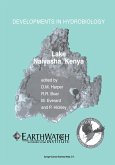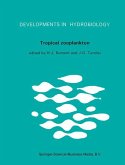The limnological study of Toolik Lake began in the Summer of 1975. This research was an outgrowth of the arctic IBP project which had focused mainly on small Arctic pond ecosystems on the Alaskan Arctic coastal plain. It was thought desirable to study larger, deeper lakes which contained fish to further generalizations developed during the IBP study.
Initial research on Toolik Lake and the surrounding lakes and ponds focused on process studies such as annual primary productivity of the lake or the vertical migration patterns of the resident zooplankton. In 1983 the philosophy of the research changed with the funding of a more integrated programme. The fundamental question posed was whether Arctic lake and stream ecosystems are regulated from the bottom up by nutrient availability or from the top down by the density and activity of top predators.
In 1987 the Toolik Lake area was designated an LTER (Long-Term Ecological Research) site, one of 18 such sites throughout the United States, Puerto Rico and the Antarctic. The research theme for the Arctic LTER also focuses on the regulation of Arctic ecosystems, whether regulation comes from the top down or bottom up. The Arctic LTER also incorporates a terrestrial component as well as a lake and stream component.
Hinweis: Dieser Artikel kann nur an eine deutsche Lieferadresse ausgeliefert werden.
Initial research on Toolik Lake and the surrounding lakes and ponds focused on process studies such as annual primary productivity of the lake or the vertical migration patterns of the resident zooplankton. In 1983 the philosophy of the research changed with the funding of a more integrated programme. The fundamental question posed was whether Arctic lake and stream ecosystems are regulated from the bottom up by nutrient availability or from the top down by the density and activity of top predators.
In 1987 the Toolik Lake area was designated an LTER (Long-Term Ecological Research) site, one of 18 such sites throughout the United States, Puerto Rico and the Antarctic. The research theme for the Arctic LTER also focuses on the regulation of Arctic ecosystems, whether regulation comes from the top down or bottom up. The Arctic LTER also incorporates a terrestrial component as well as a lake and stream component.
Hinweis: Dieser Artikel kann nur an eine deutsche Lieferadresse ausgeliefert werden.








